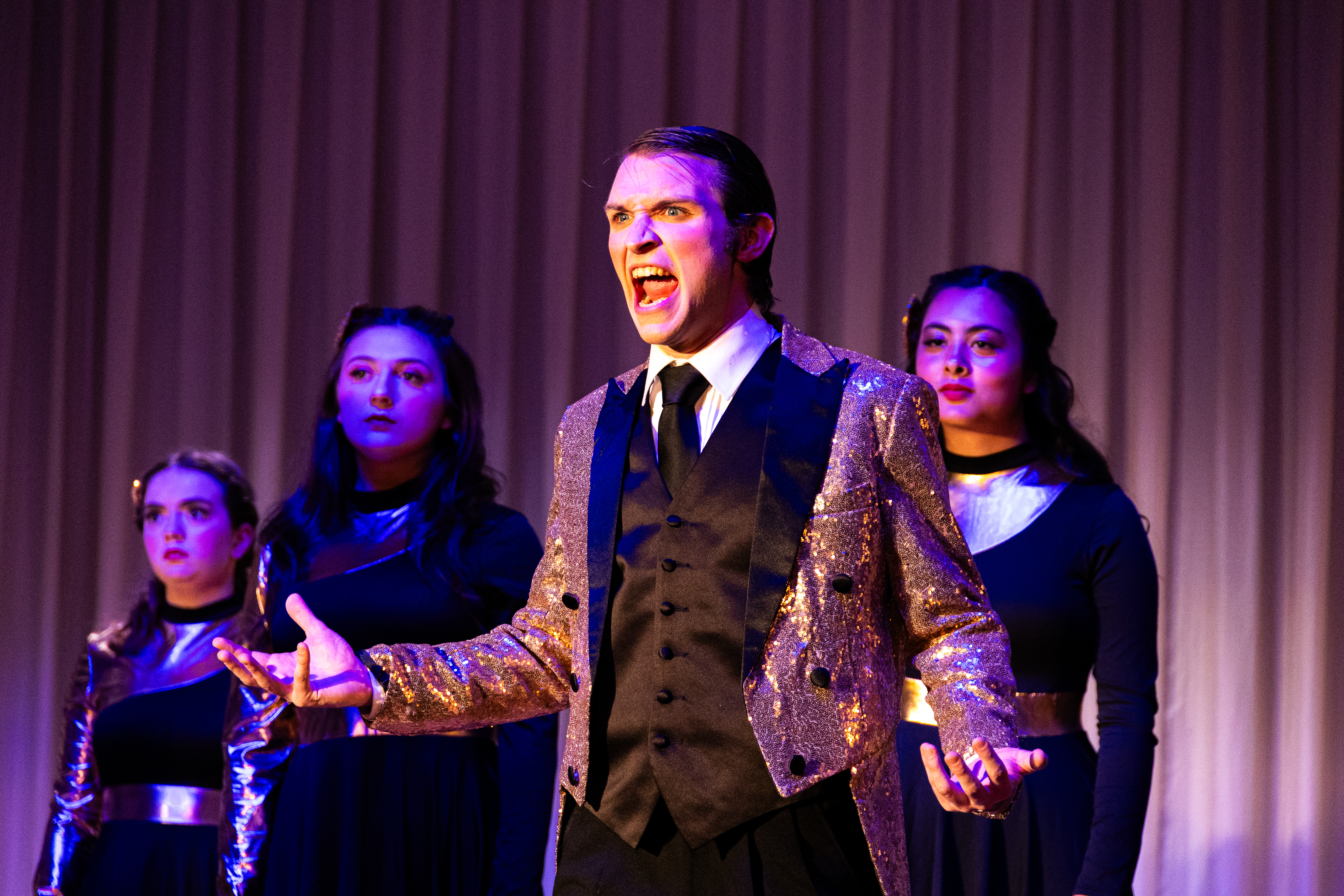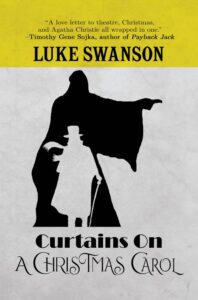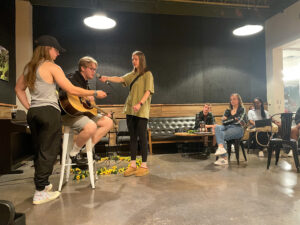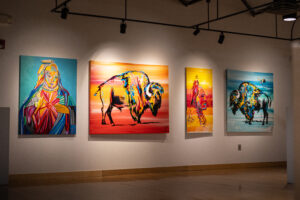An aerospace engineer turned producer, OTR took an unconventional route to the music scene. Pulling influences from indie artists like Bon Iver and Daughter as well as fellow indie producers such as Odesza, OTR has created a nostalgic sound unique and satisfying to the soul.
With two original singles this year, “KIA” and “Heart,” OTR seems to be coming into his own and growing more comfortable in the music scene.
If you could give me a little short background of yourself, what college did you go to? Did you always know how to play piano or did you see it in the lobby one day and decide to give it a shot?
Yeah, I went to the University of Cincinnati. I had a piano in my house, but I never really played it all that often. It was out of tune and was just bad. I never really had the drive to play it through high school. But when I went to college, I was just kind of stressed out with exams and all that stuff, so I decided to really get into it.
What internship were you selected for in Japan that brought you over there?
I was a last-minute replacement. It was actually my buddy’s girlfriend who was supposed to go, and she had to go through this extreme week over there where she learned the culture. After that, she decided not to go with that company. They were kind of scrambling for someone to take her place. She had already learned Japanese and all this stuff, and that was a requirement, but since they needed someone last minute, they were able just to pick whoever volunteered first. I got that email and was like, “Oh for sure. I’ll do this.” It was kind of a unique opportunity, and I didn’t have to do any of the intensive training. I was just able to dive right in. Then from there, I was in a small town in the Okayama Prefecture, which is kind of in the middle of nowhere, and I worked on a little field manufacturing plant. Since I was in a small town, I was kind of bored, so I bought a mini keyboard, and then I got really into production.
What made you realize, “Oh, I can do this for a living”? Going from aerospace engineer to being a producer is a huge jump.
It took a few years after Japan; I was actually in grad school for aerospace engineering. I had done all my coursework, and at the same time, I was just starting to get a little bit of recognition in the electronic music space. Right when I was about to start my thesis, a bunch of professors decided to quit, and I had nobody to do my thesis under. Through that standstill and at the same time starting to gain recognition from all these YouTube people, my Mickey Valin remix at the time had just got on a big Spotify playlist with about 2 million people. I didn’t understand what that meant at the time, but then the guy that I remixed hit me up and told me, “This is like a big deal, you should consider going into this full time if you have the opportunity.” That was the lightbulb moment. After that, I started just really going in.
Being an indie artist, you’re doing it all yourself, especially starting up, What has been the most significant setback or what you’ve found to be the hardest part?
I think the hardest part was figuring everything out. There’s a big jump from just being a producer to being an artist with an identity and a brand. They don’t really teach you that in aerospace engineering, right? I had to learn and get into all the technical stuff, the mixing and mastering and really honing in my sound. Then everyone is also asking me all these questions about what my identity was, and I think that was the biggest setback because I had no idea. The best thing that happened to me from that setback was I was in contact with my team right when I was starting to get those questions, and they helped me a lot in developing that. I kind of got lucky there.
How would you describe your brand and yourself now?
My first impression of myself I think I was kind of like an engineer really, but now I think I really like my sound. I realize that I like pulling from my indie-rock influences from my childhood, a bunch of guys like Passion Pit really put into my identity now. It’s a mixture of indie and heavy electronic rock at the same time.
What’s the process that went into making “Heart” with Shallou? Did you create the beat and he wrote the lyrics, or was it the other way around?
This was the first time I actually met someone in person, and as you said, usually I give someone a song, and we bounce back and forth via email. However, he invited me to work with him down in a studio in [Los Angeles], and while we were there I played him the song I thought we were going to work on together. It’s a completely different instrumental actually, and we kept moving back and forth. I told him the story behind the song that I had written instrumentally. From there, we came up with lyrics together, and on the spot, he came up with random vocal hooks. We just ran with it, and I got to hear it live. Then he gave me a flash drive with a bunch of ideas I could pull from. When I got back to Atlanta, I was going through these ideas, and that’s when I realized I should write a new instrumental for the vocals we came up with, and that’s how “Heart” came about.
What are some of the difficulties working through email as that’s what you have done previously?
There are some pros to working via email in that you can just let the person do their thing, but the cons are you can’t give any live input. If you’re struggling to find something you like, it can take a while to come up with something. Ideas sometimes just fade away, and that’s a shame. But if it’s in person, the biggest thing is just getting comfortable with shooting out ideas without feeling embarrassed. Once you get into the flow of throwing things out there and not caring what anyone else thinks and seeing how the other person responds, it can be special.
Getting that instant feedback, whether it’s from facial expression or their words, must be a lot nicer.
It’s almost like speed dating in a way.
Who in the industry has been a mentor to you?
The first guy was probably Micky Valin, the guy that I remixed. He was really cool; he gave me a look into what was happening with that remix and the importance of it and how it was setting me up. From a blogger standpoint, Chad Hillard from The Hillydilly was the first person to really write about me and get me in touch with my management team. Shallou has been great too, he’s been promoting everything even before the song came out. Even from the get-go, he has a million listeners on Spotify, and he’s just so down to earth so that was really awesome of him. He really wanted to make sure it got the recognition it deserved.
With your roots from being an engineer and, doing the gritty work to get to where you are now, what do you think you bring to the table that others don’t?
I think engineering helped be a bit more realistic with my dreams and my work ethic when I go about writing a song. Writing a song takes a lot of work and producers probably know that too, but I think I go about it in a much more serious manner, and that can rub you the wrong way depending on how I go about doing it in the studio. I think I take more of a work approach to it than an artistic approach at times cause I want to get it done as fast as possible. I had a session where this guy wasn’t really focused and was just playing around with the mic. Also, there wasn’t really any time to do anything creative, it was more just getting to know each other, but at the same time I really just wanted to work.
That makes sense, especially coming from aerospace engineering where everything is so meticulous and has to be done on schedule.
Yeah, I think it’s good to get our project done and do all-nighters or whatever and then the next day we just go out and go crazy. When we’re in the studio lets go in, get things done and then after we can go out and do whatever we want.
What song are you most proud of?
I think “Heart” is the one I’m most proud of right now, because of the way it came together and how cool it was and just how random it all occurred. We didn’t get any ideas done in the studio for it, but then I realized that there was actually some gold in the files that he sent me. Pulling that from an error and creating this track around that I think was a really cool thing — then sending it to him and him being instantly so excited about it, because we were both struggling and trying really hard to fit something on an already dumb idea.











Be First to Comment